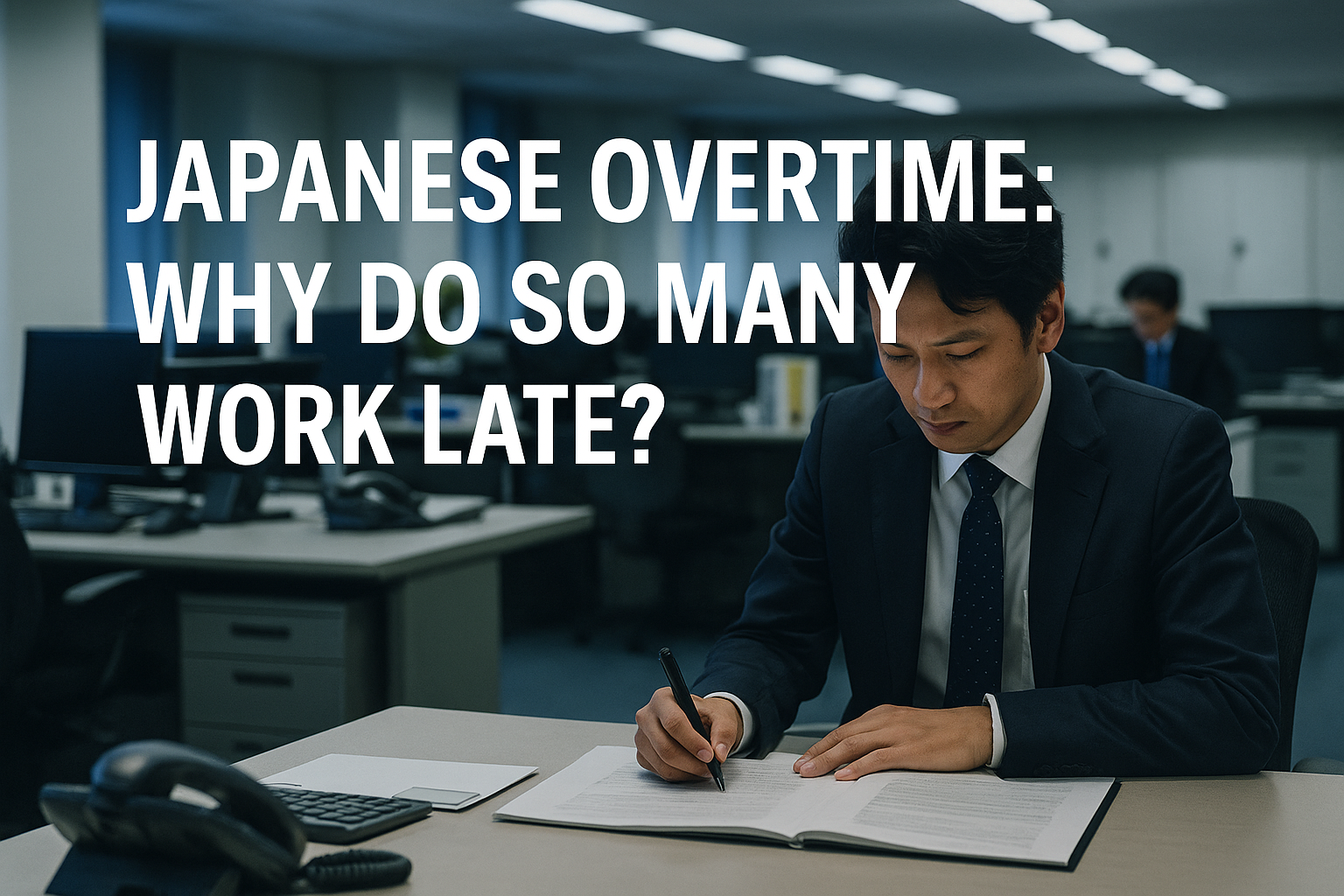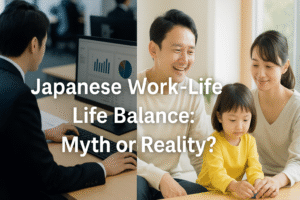If you’ve ever visited Japan and looked into an office building at 9 PM, you may have noticed… the lights are still on, and people are still working. Why?
Japan has a global reputation for long working hours. While things are slowly changing, overtime (zangyō) remains a common part of life for many Japanese employees. So what’s behind this culture of staying late?
Let’s take a closer look.
🕰️ It’s Not Just About the Work
Believe it or not, working late doesn’t always mean there’s too much work. In many cases, people stay late simply because their boss or colleagues are still there. Leaving early might seem like you’re not committed enough — or worse, disrespectful.
This “stay-until-the-boss-leaves” mindset is surprisingly strong.
🧱 Group Harmony and Social Pressure
Japan values wa (和), or harmony. In the workplace, this means avoiding actions that disrupt the group. If everyone else is staying late, you might feel pressured to do the same — even if your work is already done.
Some employees pretend to work just to “look busy” and not stand out.
🆓 Service Overtime (a.k.a. Unpaid Work)
A lot of overtime in Japan goes unpaid — it’s called sabisu zangyō (サービス残業), or “service overtime.” This practice is technically illegal but still happens, especially in smaller companies.
People might not report it out of fear, habit, or loyalty.
🧠 The Psychological Trap
There’s also a strong belief that “hard work = good person.” Staying late becomes a way to show you’re dependable, hardworking, and loyal to the company.
Even if it’s bad for health, people don’t want to be seen as “lazy” or “selfish.”
⚖️ Work-Style Reform: Slowly Changing Things
In recent years, the Japanese government introduced Work-Style Reform Laws to address overwork and encourage a better work-life balance. These include:
- Overtime caps (generally 45 hours/month)
- Mandatory vacation days
- Encouraging remote work
Some companies now even set lights to automatically turn off at a certain time!
😓 But Change Is Slow…
While reforms are promising, changing the culture behind overtime is harder than changing the laws. Many older managers still expect long hours, and younger employees don’t want to “rock the boat.”
Still, more people — especially younger generations — are starting to speak up.
💬 Final Thoughts
Why do so many people in Japan work late? It’s not always about the workload — it’s about culture, hierarchy, and social expectations.
But times are changing. More Japanese workers are seeking balance, rest, and a life outside the office. It may take time, but the overtime clock is slowly ticking in a new direction.








